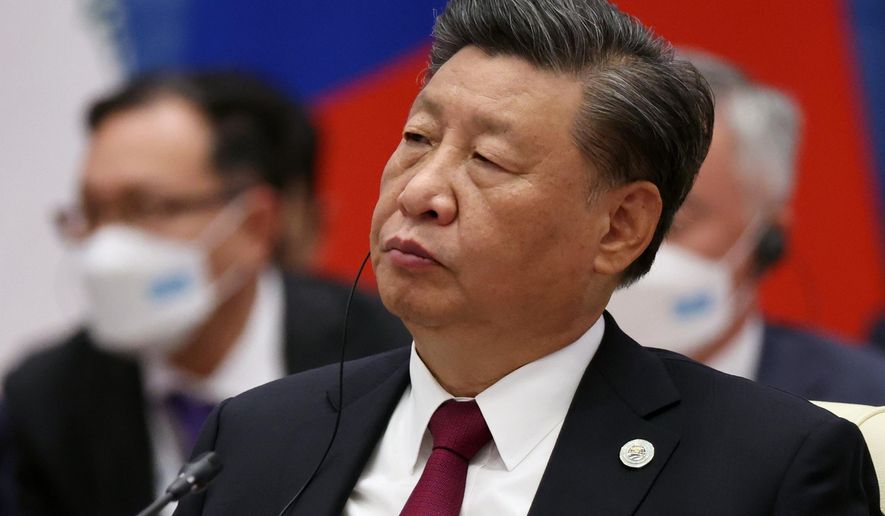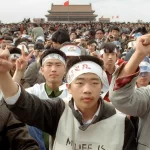By Bradley A. Thayer
The Chinese Communist Party’s (CCP) 20th Party Congress was momentous and insight into Xi Jinping’s leadership and impact upon the Party. In historical perspective, this Congress will be seen a significant development with lasting implications for the CCP, China, and for the risk of war in international politics. We consider three of the immediately most significant.
First, in his address Xi proclaimed that the CCP has achieved its first centenary goal, building a moderately prosperous society, and has now moved on to achieving the second centenary goal of building China into a modern socialist country in all respects and advancing the rejuvenation of the Chinese nation. The implications of this are that Xi is satisfied to convey to domestic and international audiences that China has reached a new standard and should be judged by different metrics. This should be interpreted by the international community as an indication that China now perceives itself, first, as capable of achieving its aims of supplanting the United States and replacing the liberal international order and, second, these actions will be legitimate. The modern socialist country gets to set the rules. Xi stated China will cause institutions to “open-up” regarding their rules, regulations, management, and standards. The world should interpret “opening-up” as institutions bending to the will of the CCP as occurred with the World Health Organization (WHO) from the dawn of the Covid-19 pandemic or the UN’s feckless response to the genocide of Muslim in Xinjiang.
Second, Xi was steadfast that the ideology of the CCP remains firmly anchored in Marxism and its guiding role for the Party. Xi is a steadfast believer in Communist ideology. He seeks to strengthen the ideological purity of the CCP while strengthening its control over China and influence in the world.
Third, belligerence was the order of the day in Xi’s speech. Its aggressive discourse was directed against the U.S. with its denunciations of hegemonism, and implicitly its allies, like Japan, and partners, like India. Most explicitly, Xi aggressive intent was directed against Taiwan. Xi stated resolving the Taiwan question is a matter for the Chinese and must be resolved by the Chinese, and for which, in the matter of Taiwan or others, the use of force will never be renounced. The implication is that coercive measures against Taiwan in the near time are likely as Xi has expressed his determination to resolve this issue and is certain to want to accomplish while he remains in relatively good health.
Reflecting on the three, the conclusions are that Marxist ideology is centrally important to the CCP and determines it goal of global domination of international politics. Marxism compels aggression. Marxists cannot accept other ideologies and are required to confront and defeat other ideologies. Yet, they also must be aggressive as they are illegitimate forms of government and must always have internal and external enemies to sustain and justify their totalitarian grip on power.
This perpetual, restless aggression was perfectly captured by Soviet leader Joseph Stalin’s February 1946 speech in which he delivered the first volley of the Cold War in a bold and sweeping address. He made three major points: first, Marxism-Leninism was fundamentally superior ideology and economic system to democratic capitalism; second, World War Two was a test of all political systems and one that the Soviet system not only passed but that its viability was proved on the battlefield and in the sacrifices made by the Soviet people; and third, that war was inevitable as long as monopolistic capitalism existed. As capitalism had caused both World Wars it would certainly cause the Third World War. Accordingly, the Soviet people had to prepare themselves for war, devote themselves to achieve the goals of new Five-Year Plans. There would be no peace within the Soviet Union as the people would have to commit themselves to victory, and equally there could be no peace with the capitalist states.
Stalin’s speech was a shock to the allies as World War II had ended with Japan’s surrender only five months before. Xi’s aggression cannot be a shock as his belligerence has been demonstrated since he came to power in November 2012. Like Stalin, Xi’s speech demonstrated that Marxist ideology is centrally important to his thought and how he seeks to influence the CCP and China. Now that the 20th Party Congress has revealed he has secured his place as one of the dominate CCP rulers in the Party’s history. Xi is indeed “thinking like a communist.” The world must grasp that he is a fervent believer in Marxism-Leninism and address the implications. His image of China—that China is now able to lead the world—his ideology—as a true believer in communism—and its consequence—his belligerence expressed against the U.S., its allies, and Taiwan, mean that Xi and the CCP will seek to cause ever more forcefully the change they want.
Like Stalin at the outset of the Cold War, Xi has provided the world with his vision for the CCP, China, and international politics. He has explained his reasoning of why the CCP is at war with the U.S. and its allies and partners. Now these states must recognize the gravity of the threat and respond with far greater alacrity than they have.
Bradley A. Thayer is Director of China Policy at the Center for Security Policy.




















